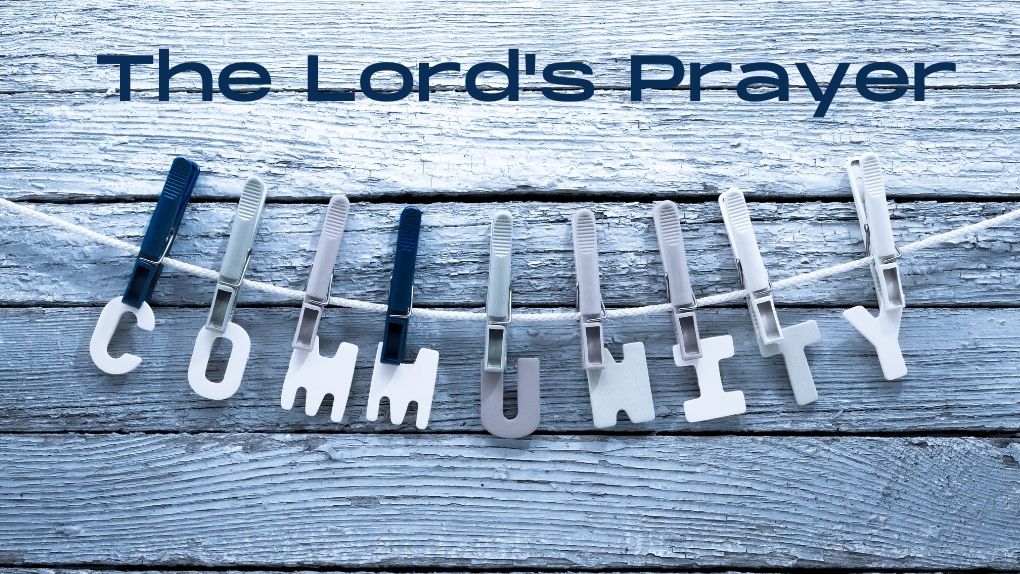The Gospel reading for this Sunday comes to us from St. Luke chapter 11. It is the story where the disciples of Jesus approach him with a surprising request, “Lord, teach us to pray” (Luke 11:1). One would assume that the disciples surely knew how to pray considering how close they were to Jesus and that they even had the power to do miracles and healings. ‘The Lord’s Prayer’ which Jesus teaches them, is very familiar to us all, many of us know it by heart in several languages and we heard many sermons on this topic. And indeed, this seemingly very simple prayer has so many layers to discover and learn from. But rarely do we consider and examine the corporate trust and community aspect of the Lord’s Prayer. This is very clear from the very first word of the prayer – Our Father. There is no me, mine and I but only we, our and us. The Lord’s prayer is a community prayer for a community.
We often subconsciously think of our faith as a one-to-one and direct relationship with God. Of course, it is true but genuine faith is also always communal and corporate. Try to think of an event, miracle, or a teaching moment from the life of our Lord. No matter what story or event you picked, chances are it was either something done for a community or realized within a community. In the Gospels, a community might be the group of beloved disciples, a group of random strangers who seek healing and learning, or even people to conspire and are hostile to Jesus and his ministry. But there is always a community within which and for which all of Jesus’ teachings and healings take place. Even in his most private moments, such as the Transfiguration and the prayer in Gethsemane, we always see a community and a group of people next to Jesus. We can easily extend this perspective to the entire Holy Bible and see that every Biblical story in its very core is a story about God’s relationship and revelation to a community. The great and holy prophets of the Old Testament are not treasured because they could divide seas, bring down fire from heaven or talk directly to God, but because of what God has done through them to their community and how their community shaped them and their ministry.
The community and spiritual family we belong to is equally important for us today. We gather here in our sanctuary every Sunday morning not because we can’t simply stay home and pray to the very same God from the comfort of our homes, but because we believe that God works and impacts our lives and speaks to us in a very different and special way through our corporate prayer and community. By praying for each other during the Badarak, by communing and communicating to each other’s worries and joys during the fellowship in a very mysterious and powerful way, our interactions and prayers are transformed into divine instruments and opportunities for healing and blessing. The shortest and most certain path to heaven always passes through another human being, through an act of caring, praying and loving someone other than ourselves. Therefore, every Sunday, every Badarak and every fellowship is an opportunity to help, support someone in our community and encounter God himself through that encounter and interaction.



Comment(1)
Peruse Khachoyan says:
November 21, 2021 at 7:35 pmWonderful reflection! Makes me think of references to establishing the “beloved community,” and “I am your God and you are my people.” Even the Trinity is a community of 3. Much to think about… Thank you!